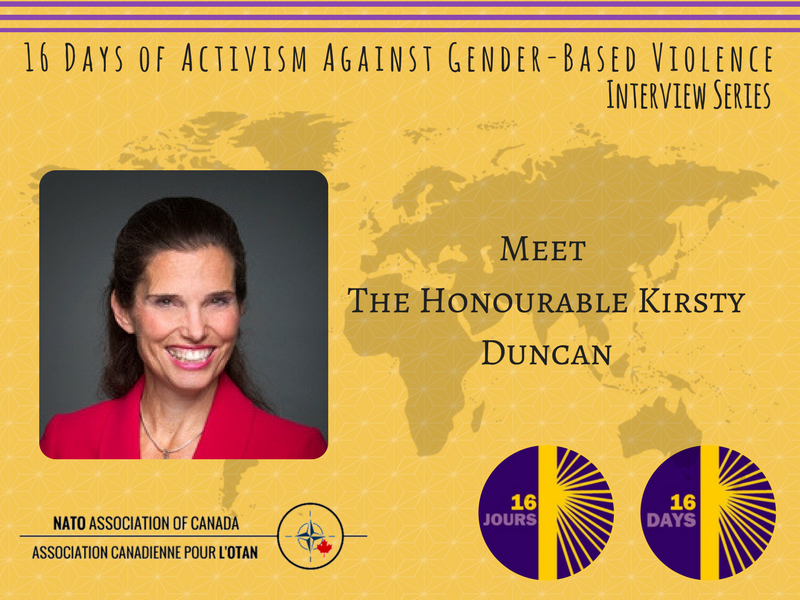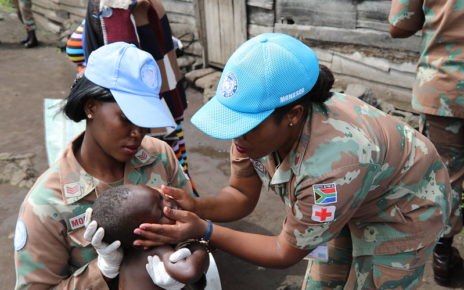Female migrants face a double disadvantage due to both their gender and their status. Learning the host country’s language and finding a job are two crucial elements to integration for all migrants. However, migrant women are often hampered in this process due to family obligations. Current policies focusing on migrant women’s economic, social, and health-related issues are insufficient and more research is needed in order to resolve the unique difficulties these women face.
Throughout their journey and struggle to be heard and recognized by the host country, migrants are subject to violence and abuse. In analyzing the hurdles migrants deal with, this article showcases the testimony of Judy Godfrey, volunteer responsible for migrant women in the association La Cimade, in Aix-en-Provence.
Immigration: the State’s Role in Gender-Based Violence (GBV)
The refugee ‘crisis’ should not be viewed as an invasion of the European continent by poor countries, but rather through the spectrum of a lack of viable strategies to protect migrants. During a 2019 conference in Aix-en-Provence, Mustapha El-Miri, a sociologist and researcher, highlighted that 5% of people worldwide immigrate or migrate. This number was also showcased in a 2019 article released by Migration en Question (Migration in Question), which showed that 258 million out of 7.75 billion people left their country to live abroad.
Migrants fleeing their countries due to economic, social and political tensions are often subjected to brutality by smugglers, traffickers, police and border guards. Reaching Europe, they have to go through a long administrative process when requesting asylum or residency. They often have to deal with an administration in charge of the delivery of identity cards, driving licenses and work permits; many of whom are unable to keep up with the demand, and ill-prepared to deal with such poverty and misery. Alexis Spire’s work “Accueillir ou Reconduire. Enquêtes sur les guichets de l’immigration” (Accepting or Rejecting. Investigations into immigration offices), examined how these public servants sometimes chose arbitrarily the kind of requests they agree to process, while attempting to discourage some migrants from applying for permits. Applicants are in a position where they are unable to challenge the rules, and when they do, they are reminded that as they are not citizens, they have no choice other than to obey. Civil servants construe the law, and in some instances, may ask applicants to provide proof of identity, while the Geneva Convention clearly states that this is not mandatory. Moreover, migrant applicants have to deal with unfamiliar rules and standards, and sometimes a language they do not speak. These factors contribute to an insecure environment as well as a significant power imbalance between civil servants and migrants.
In France as in the rest of Europe, the situation of migrant women has been increasingly worrying. More and more women have to travel alone, either because their family believes that their vulnerability would facilitate their entry into Europe, or because having lost their husbands they have no other options. A 2015-2016 research study conducted in Greece, Serbia and France by Jane Freedman demonstrated that closed borders increase women’s vulnerability to transactional sex and sexual and gender-based violence (SGBV) since the need for smugglers is increased. During their journeys, most women face physical and psychological abuse from smugglers, traffickers, police, or their husbands. Not only do border guards pay little attention to problems women may face, but they may be perpetrators of violence and human rights crimes themselves. This may explain why women are reluctant to say anything about their trauma. They often fear retaliation, may distrust the staff on the camps, and often believe that speaking up will delay their journey. Due to a lack of clear policies and support services, migrant women facing sexual abuse bear the burden of their traumatic experiences alone.
La Cimade: an Association Supporting Female Migrants
La Cimade (Comite Inter-Mouvements Aupres des Evacues) is a French organization created in 1939 during World War II, which initially aimed to help evacuated citizens from Alsace and Lorraine. After the war, the organization carried on helping oppressed people by supporting the integration of migrants. Its mission has evolved since 1939, and modern volunteers aid migrants in their administrative and legal procedures, attend trials at the administrative retention centers, collaborate with other associations, and inform citizens about the realities of migration via demonstrations, articles and events.
Judy Godfrey is a volunteer responsible for migrant women at La Cimade. She started as a translator to help an Eritrean woman who was put into sexual slavery at a young age. She first met this woman on Thanksgiving Day. While people were busy celebrating, this woman was fighting for her life, seeking refuge in France.
“Thousands of other women suffer from slavery and sexual abuse. People cannot imagine the atrocities migrants have to face,” said Godfrey. A 2020 initiative will be organized on International Women’s Day with ten other associations such as Planning familial, and Amicale du Nid (which fights human trafficking) and it will consist of working hand-in-hand with a new association called ‘Gynécologues sans frontières’ (Gynecologists without borders).
“People tend to think that because Aix-en-Provence is a rich city, there is no violence against women while there is violence against both women and migrants. I found it interesting that there is a huge interest regarding women who suffer from violence in Aix-en-Provence,“ said Godfrey.
Giving visibility to migrant women is the upmost priority for La Cimade. Each year for Women’s Day, volunteers set up booths and speak with people about issues concerning migrant women such as living conditions and the difficulties that prevent them from fully engaging with society. Female migrants may face a double discrimination if they are pregnant or already have children because this makes it more difficult to learn the language and to get involved socially and economically. Thus, they are less visible within the social landscape and no laws are implemented to support or protect them.
Three times a month, volunteers from La Cimade offer free consultations to provide migrants with legal and administrative advice. They also offer regular appointments to help build their cases and accompany them to the immigration offices. Attending these meetings and listening to migrants’ stories helps form an understanding regarding why these people decided to leave their countries. This understanding should be shared with others so that our society as a whole may become more tolerant and less influenced by misleading political or media discourses that portray immigrants as a threat to society.
“Empowering migrant women begins with an awareness in our own country. It also revolves around our capacity to listen to these women and to train others to listen to what they have to share,” said Godfrey. “Not only is communicating migrants’ rights and informing them about the administrative process a crucial step, but children in France need to learn about migrants’ experiences.”
Featured Image: Jeanne Menjoulet Follow Broken Migrant Women #BACKTOTHESTREET Paris, Louis Blanc. Licensed under CC BY 2.0.
Disclaimer: Any views or opinions expressed in articles are solely those of the authors
and do not necessarily represent the views of the NATO Association of Canada.




